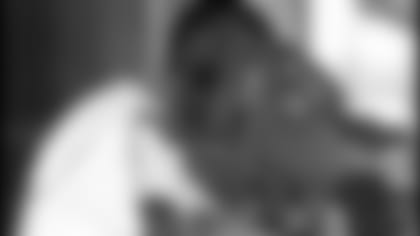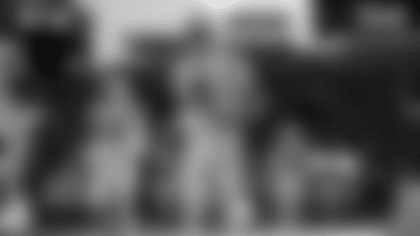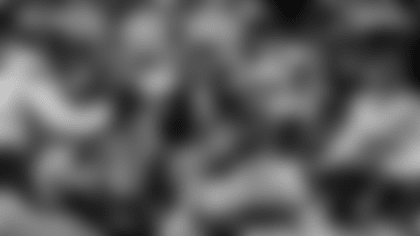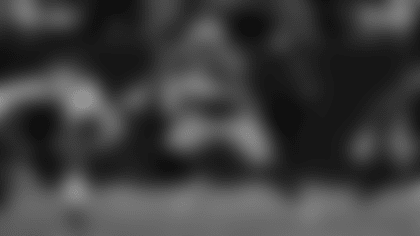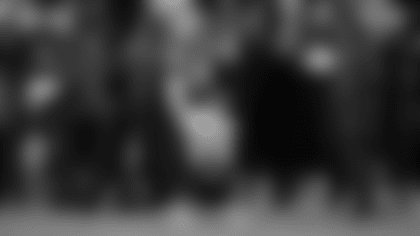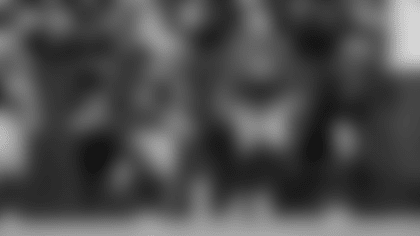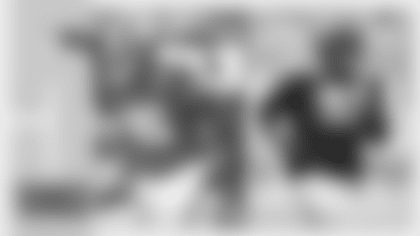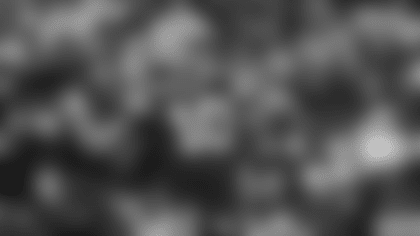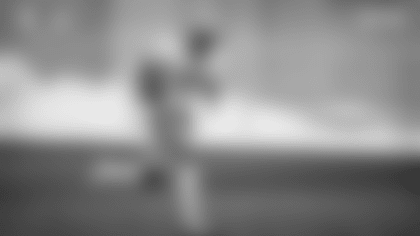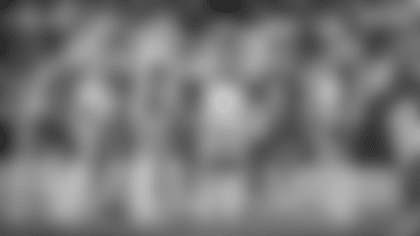*The success of the Green Bay Packers relies on more than just the players you see suited up or the coaches pacing the sidelines calling the plays on Sundays.
With nearly 200 employees on staff, the Packers consist of many different departments, each coming together for one common goal: the success of the team.
Under the direction of president/CEO Bob Harlan, the Packers last year were ranked the No. 1 organization in professional football for the second consecutive season and the top organization in all of professional sports in 2003, according to a survey produced by *ESPN The Magazine.
Periodically, Packers.com will introduce you to some of the people responsible for putting the best possible product on the field ... and keeping it there.
If you think that NFL football is a game played by 45 men per team showing up on the field on Sundays with a few coaches to give them directions thrown in, you have no idea how much of the story you're missing.
There are many people involved in behind-the-scenes roles who work long and hard to give those players and coaches everything they need to make themselves better and to be better prepared for each week's contest.
Many times, you hear a player or coach talk about what they've seen on game tape, or that they've learned a lot by breaking down film of the upcoming opponent.
Where do they get that film? No, the teams don't just pop a recording of the television broadcast of last week's game into the VCR.
Each team has a video staff, and they film every game from both a sideline angle and a high end zone vantage point. Following each game, teams are required to provide the other teams in the league with their footage.
In the Packers case, the video department is made up of video director Bob Eckberg and his assistants Chris Kirby and Andy Muckerheide.
Not only do they film every game, but they are on hand for every practice (year-round), every drill, every tryout - virtually anytime there is on-field Packers-related activity.
If you paid a visit to any of the team's training camp practices, you most likely noticed the elevated booth located behind the activity in the middle of the field. Inside the raised booth was a member of the staff, providing the "end zone" view of the practice. You may have also noticed the crew recording the sideline view perched on the outside of the Don Hutson Center.
On game days at Lambeau Field, the scoreboards behind each end zone are the homes for two of the video guys, with the cameramen braving the winds and often cold temperatures to provide the video footage. The sideline view is taken from a booth near the press box high behind the Packers' sideline.
While the games are important, the coaching staff is able to learn even more about their team by being able to watch each and every play and drill that goes on in practice throughout the week.
"Our main job for the team is to provide them video of the practice sessions they have us shoot," Eckberg said. "We will go out and shoot whatever drills coaches decide they would like to see tape of. That goes from summer camps to mini-camps, all the way through the year."
By the time the coaches and players have made the short trip from the practice field back to their headquarters at Lambeau, the video department will have nearly all of the day's activity ready for them to view, using a state-of-the-art computer system.
"Right now, what we do is, we record directly onto a disk," said Eckberg during a practice late in training camp. "It is a 40 gigabyte hard drive that we are able to transfer from our shooting position into the computer. We're able to dump the footage immediately into the computer and we've got all of our data and everything that's along with it right away. Andy would come in and bring this disk up to the office, and he will start dumping it into the computer, so that when the coaches get back up there, they will be able to look at it almost right away when they get into the office again.
"Our goal as the video department is to make sure that we have practice for them to look at as soon as they get off the field. They may have everything through the last drill when they get off the field."
Every play or drill is available to the players and staff to watch from both angles, so that no detail will be overlooked.
"You can usually figure that you're going to see two angles of everything, which is usually what we call an intercut," Eckberg explained. First you see the sideline shot, and then right behind it, you see the end zone shot. Instead of having two tapes, one with sideline on it and one with end zone on it, the whole team can look at a particular play from both angles. Wide receivers and defensive backs can see the wide angle shot, and the running backs and linemen can see the end zone angle."
Likewise, each play of a game is loaded into the system in the same intercut manner. Long after the cheers of the crowd have died down and Lambeau Field has emptied out, the men of the video department are still hard at work to have everything ready to send to the other teams and available to the coaches first thing Monday morning.
The process takes about as much time as the game itself, and Eckberg said that they are generally finished with the work about 2 1/2 to 3 hours after a home game, and about the same time after getting back to Lambeau from a road game.
Eckberg, who is a native of Green Bay, has been working with the Packers since the early 1970s. His association with the team began when, as an employee of local TV station WBAY, he processed all of the team's game film.
In the early 1980s, videotape technology became standard in the television industry, and in 1982 the Packers purchased the film lab setup from WBAY and hired Eckberg as assistant video director, a title he held until reaching his current status in 2001.
He spoke about what it takes to be successful in his line of work.
"People have a lot of preconceived ideas about what you do with this," he said. "People see that you're out here shooting video, and automatically think that's the only thing you do. Now, there's so much more emphasis on the computer skills that you have to have. Shooting is kind of like a minor thing.
"People say that it's easier to get a guy that has the computer skills and teach him how to shoot, than to teach a photographer how to use the computers. There are just so many things that come into play when you're working there. It's not just shooting pictures. You do this every day of the week from July until February. People figure that this is a great job, but you have to do it when it's cold and freezing out here too. You do it when it's hot and sweaty. It's kind of like delivering the mail."
There is no doubt that the video staff plays a key role in the success the Green Bay Packers enjoy on a weekly basis. Their contribution to the team is vital to the players' excellence on the field.
"It's a commitment that you make," Eckberg said. "I want to be able to give the team the very best that we can do, so they can utilize that to the best of their ability. When we sit down and do work for the coaches, we want to make sure that we give them everything that they can possibly have to get their training points across to the team with as little hassle as you can give to them."


